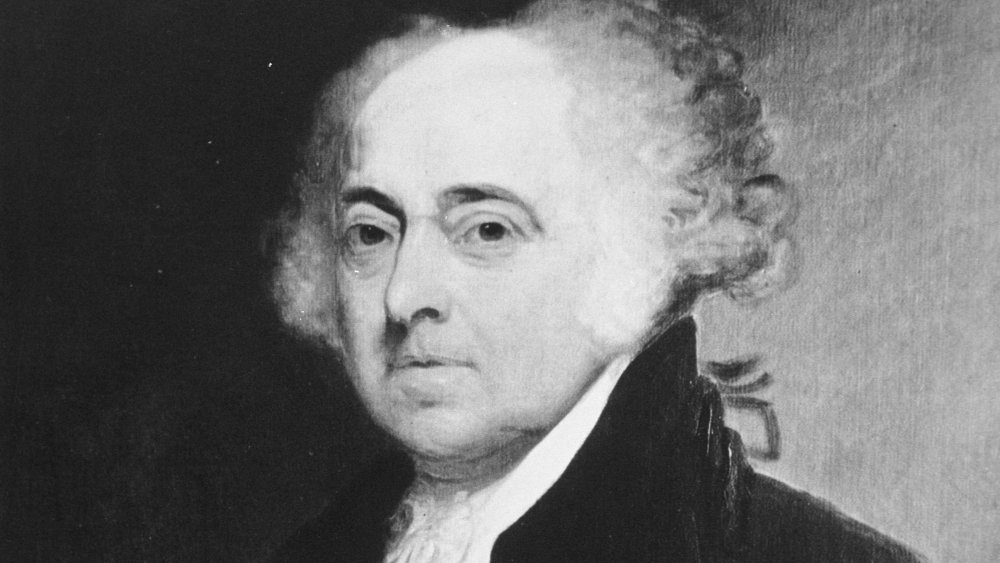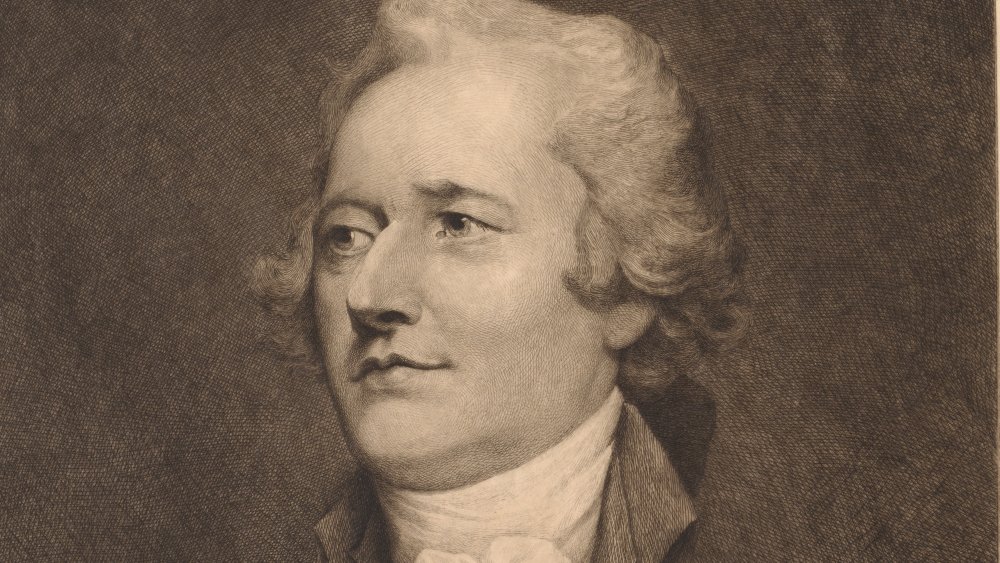The Real Reason John Adams Hated Alexander Hamilton
It's not all that unusual for people with similar endgames to disagree about the strategy to get there. Even really smart people. Even the Founding Fathers. You'd think after that whole "Cast off the shackles of British imperialism" thing they all went through, they'd be cheerfully taking turns hosting barbecues and mailing thoughtful birthday cards to one another — and on time, too — but apparently, the shooting fracas that was the American Revolution wasn't the only cause for dissension in the freshly-minted United States in the late 1700s.
The war over, the British gone (or at least in Canada, where they belonged), elections were held and governments formed. The first President was George Washington. Serving with him as the nation's first Vice President was John Adams, according to Biography, who'd signed the Declaration of Independence back in 1776. Helping craft an economy and money policy for the new nation was Alexander Hamilton, appointed as the first (there's that word again) Secretary of the Treasury, again, per Biography.
Hamilton was a member of the Federalist party. So was Adams. Just because they shared a political party, though, doesn't mean they presented a united front. Far from it. Hamilton, a gifted writer, took up ink to attack during Adams's 1800 run for re-election. He published a pamphlet laying out the reasons why Adams was essentially unfit for office.
John Adams called Alexander Hamilton a man of indelicate pleasures
The New York Historical Society explains the kerfuffle as an 18th Century "#NeverJohnAdams" campaign. To block an Adams presidency, it would be enough to convince voters to throw their support behind the other Federalist candidate, so Hamilton printed his denunciation of Adams for distribution within their mutual political party. As these things do, parts of it leaked to the press, especially the gossipy bits, like reports of Adams throwing temper tantrums behind closed-door cabinet meetings. There was criticism of his foreign policy — he'd managed to avoid war with France, which some thought misguided — but much of it was personal. "It is a fact that he is often liable to paroxisms of anger, which deprive him of self command, and produce very outrageous behavior to those who approach him," wrote Hamilton. "Most, if not all his Ministers, and several distinguished Members of the two Houses of Congress, have been humiliated by the effects of these gusts of passion."
Whether the pamphlet was a factor or not, per the Founders Archives, Adams lost the election to Thomas Jefferson and Aaron Burr. After turning on one of his own, Hamilton's political aspirations were effectively torpedoed in the eye of the voting public. Hamilton died in a duel with Aaron Burr in 1804. In 1809, Adams got the last word with a series of essays, defending his actions as President and referring to Hamilton as a "little man" of "indelicate pleasures." Ouch.

